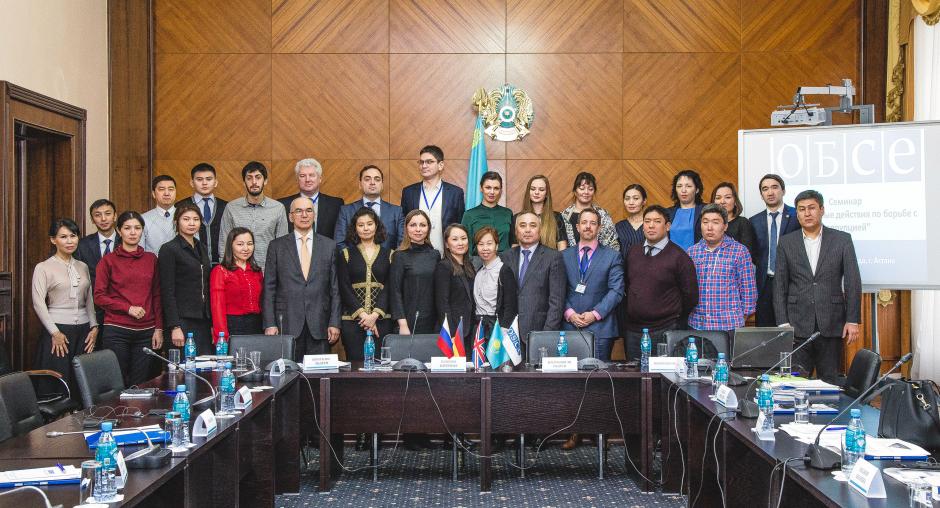OSCE-organized training course on anti-corruption actions concluded in Astana

A one-week modular training course on collective action, the role of regulatory impact assessments and anti-corruption proofing of draft legislation for more than 40 representatives of public sector, business community and civil society concluded on 8 December 2017 in Astana.
The course was organized by the Office of the Co-ordinator of OSCE Economic and Environmental Activities (OCEEA) with the support of the OSCE Programme Office in Astana in order to assist the Kazakh government and relevant anti-corruption stakeholders in building multi-stakeholder partnerships in the fight against corruption and developing and sustaining a more effective system to identify corruption risks in the legislative drafting process.
Senior representatives, including from the the Agency for Civil Service and Anti-Corruption and the Academy of Law Enforcement under the General Prosecutor’s Office of the Republic of Kazakhstan as well as participants from the business community and civil society learned how to identify corruption risks in legislative drafts and how poorly drafted legislation can encourage corrupt behaviour and make corruption legal.
Under the guidance of international experts from Germany, Georgia, Moldova, Russia, Ukraine and the United Kingdom, participants worked on specific case studies and engaged in interactive exercises and real life scenarios. Participants also studied the principles of good regulation and public consultations as key tools to improve the quality of regulation and to fight regulatory capture.
Shakir Shayakhmetov, acting first vice rector of the Academy of Law Enforcement under the General Prosecutor's Office of the Republic of Kazakhstan said: “The global challenges of the 21st century, including rapidly changing political, economic and social conditions, mark the need for the adoption of qualitatively new approaches in anti-corruption policy development”.
“Through this project, the OSCE continues to support the Kazakh Government to fully comply with the UN Convention against Corruption and other relevant legal instruments,” Said Rati Japaridze, Head of the Economic and Environmental Department at the OSCE Programme Office in Astana.
The one week training course was held in follow-up to a two-day anti-corruption needs assessment mission conducted in July 2017. It is part of an OSCE-led extra-budgetary project on fostering a participatory approach towards preventing corruption in Central Asia.
